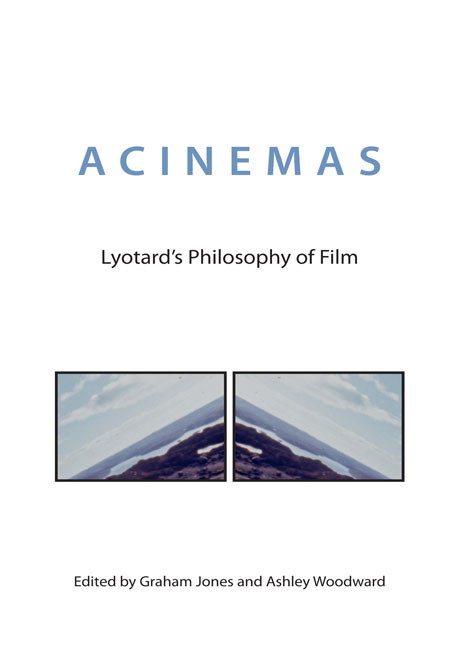3 - Cinema Lyotard: An Introduction
from I - Openings
Published online by Cambridge University Press: 23 June 2018
Summary
Let us dispel a persistent injustice. For reasons I will come back to later, it has taken several decades for the name of Jean-François Lyotard to be able to appear, without a feeling of arbitrary unfairness or of audacious anomaly, alongside those of Gilles Deleuze, André Bazin or Serge Daney in a dossier dedicated to French cinema theory (as much as Lyotard detested this word ‘theory’, which reeks of monotheism and accounting…).1 Looking a little more closely at the facts, which are all equally as stubborn as the theoreticians, we find it hard to understand how such an ostracism – there is no other word for it – has been able to impose itself in the discourse on cinema, despite the fact (we will see this later also) that numerous theoreticians, sometimes those very ones who keep obstinately quiet about it, have openly stolen Lyotard's whole box of methodological and operative tools (the figural), with more or less good fortune. (That is said in passing.)
Certainly, one will not find in Lyotard anything comparable to the enterprise later conducted by Deleuze with his two Cinema volumes; and unlike his friend, the author of Discourse, Figure has not inspired a whole critical disciplinary trend, nor given, coram populi, a new face to cinema studies. But like Deleuze, Lyotard has in his own right extended a metamorphic gesture that could be traced back to Maurice Merleau-Ponty, and in particular to his celebrated 1945 conference on ‘The Film and the New Psychology’. It was there that Merleau- Ponty posed the fundamentals, common to cinema and the philosophy of perception, of what he called ‘a certain way of being, a certain view of the world which belongs to a generation’ (1964: 59), and thereby established a programme for more than sixty years of philosophy and reflection on cinema. Mer leau- Ponty himself only offered a catch-phrase or slogan for this programme – and his predecessors had never done any more on this virgin territory – since he never supported his proposition about the cinematic (perceptive) process with even the slightest, most idiosyncratic analysis of filmic (aesthetic) facts.
- Type
- Chapter
- Information
- AcinemasLyotard's Philosophy of Film, pp. 17 - 30Publisher: Edinburgh University PressPrint publication year: 2017



